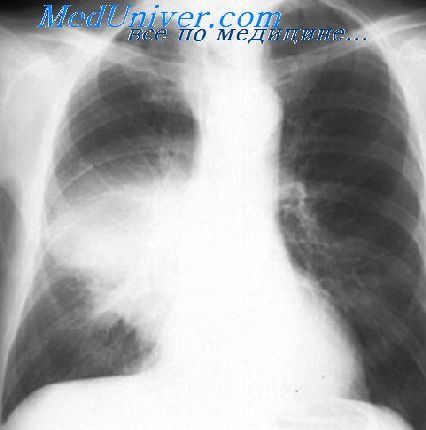Just like pneumonia in humans, pneumonia in dogs is a serious health condition and can be life threatening. Canine pneumonia is rare in healthy dogs. Those who are at high risk are usually older dogs, puppies and dogs whose immune system is weakened or
existing health problems or chemotherapy or corticosteroids. Bacteria: Bacterial pneumonia in young puppies usually called. In addition, dogs with chronic bronchitis, collapsing trachea, or foreign bodies in the lower respiratory tract often develop bacterial pneumonia. Fungi: fungal pneumonia, usually caused by fungal infections, such as (coccidioidomycosis) or cryptococcosis. Dogs infected

inhalation of spores. About 50% of infected dogs show respiratory signs such as cough. Pneumonia can occur secondary to infection. Virus: Virus pneumonia in dogs are usually the result of, or upper respiratory tract infection (URI). Parasite: Parasitic pneumonia caused by these parasites, both internal and lungworms. Allergy: Allergic pneumonia caused by the allergen (or irritant). This leads to excessive inflammatory cells penetrate into the lungs
resulting pneumonia. Chemical Industry: Chemical pneumonia caused by inhalation of smoke or swallow hydrocarbons such as gasoline or kerosene. Aspiration of fluid: Canine aspiration pneumonia caused by aspiration of fluid in the lungs and occurs frequently in dogs with
cleft mouth or megaesophagus. Reflux of gastric contents into the lungs during general anesthesia or vomiting may cause aspiration pneumonia. One of the classic symptoms of dog pneumonia moist, bubble, indicating fluid in the lungs. In addition, dogs with pneumonia shows the following symptoms:
dogs with severe pneumonia can not get enough oxygen into the lungs, so they often sit with the head extended and elbows were larger for expansion >> << chest. Treatment of dogs pneumonia depends on the severity of the disease. Dogs with pneumonia, but the symptoms of which the light can be treated at home with medications such as antibiotics for bacterial infections. Antibiotics should be continued
, least three weeks and weeks strattera 10mg of chest radiography should be done to determine progress. Do not use a cough, although the dog may have a bad cough for cough is therapeutic - it can clear the airways of mucus and pus education and
facilitate breathing. For dogs with fever and signs of respiratory infection, they require hospitalization and emergency veterinary care that may include antibiotics and intravenous fluid therapy. Besides the management of medicines offered by your veterinarian, you can do several things at home that your dog more comfortable if he has pneumonia. For example, you can
consider using some of these home remedies:
Cough Expectorant: unlike cough, cough expectorants not suppress the cough reflex, but it helps to liquefy mucus secretions
so that they can be coughed into more easily. Cough medicine that contains an expectorant called huafenizin is available over the counter
(Robitussin for example, children). It is safe for dogs of all coughs. Recommended dosage: one teaspoon per 20 pounds of body weight every 4:00. Vitamin C / Echinacea: Vitamin C increases the immunity of your dog so it can quickly recover from diseases such as infection. Try to give your dog >> << dose vitamin C dosage is 500 mg for large dogs and 250 mg for small dogs. Herbal Echinacea tincture can also be used to boost immunity. Evaporator: Use the evaporator 10 to 15 minute intervals several times a day to soothe and moisten the respiratory tract of dogs. If you have essential oils
add a few drops on the evaporator can help relieve cough as well. Essential oils of lavender, eucalytus and tea tree are antibacterial and antiviral. Essential oil of chamomile >> << a calming effect. Shock therapy Shock therapy is a method that can be used to help break up and mobilization of secretions deep within the lungs of dogs. This
cup your hands and gently but quickly press the dog's chest repeatedly. This weakens the secret deep in the lungs and helps them move into the airways. >> << Selection may be removed by coughing. This can be done about 4 times a day. .
No comments:
Post a Comment